Related Research Articles

Archibald Acheson, 2nd Earl of Gosford,, styled The Honourable Archibald Acheson from 1790 to 1806 and Lord Acheson from 1806 to 1807, was a British politician who served as Lieutenant-Governor of Lower Canada and Governor General of British North America in the 19th century.

Charles Grant, 1st Baron Glenelg PC FRS was a Scottish politician and colonial administrator who served as Secretary of State for War and the Colonies

William Vesey-FitzGerald, 2nd Baron FitzGerald and Vesey, was an Anglo-Irish statesman. A Tory, he served in the governments of Lord Wellington and Robert Peel, but is best known for his defeat in the 1828 Clare by-election, hastening Catholic Emancipation across Britain and Ireland.
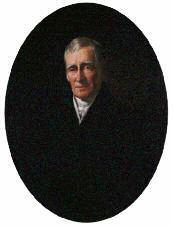
Charles Arbuthnot was a British diplomat and Tory politician. He was Ambassador to the Ottoman Empire between 1804 and 1807 and held a number of political offices. He was a good friend of the Duke of Wellington. His second wife, Harriet, became a hostess at Wellington's society dinners, and wrote an important diary cataloging contemporary political intrigues.

Sir Gilbert Heathcote, 1st Baronet, was a British merchant and Whig politician who sat in the English and British House of Commons between 1701 and 1733. He was a Governor of the Bank of England and was Lord Mayor of London in 1711.
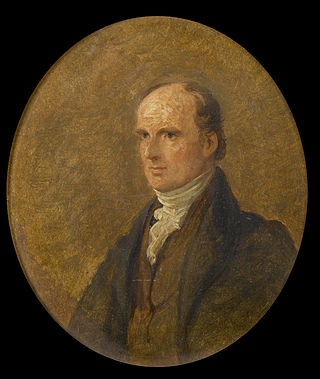
Henry Warburton was an English merchant and politician, and also an enthusiastic amateur scientist.

Charles Cecil Cope Jenkinson, 3rd Earl of Liverpool, styled The Honourable Charles Jenkinson between 1786 and 1828, was a British politician.

George Tierney PC was an Irish Whig politician. For much of his career he was in opposition to the governments of William Pitt and Lord Liverpool. From 1818 to 1821 he was Leader of the Opposition in the House of Commons.

James Kitson, 1st Baron Airedale, PC, DSc, was an industrialist, locomotive builder, Liberal Party politician and a Member of Parliament for the Holme Valley. He was known as Sir James Kitson from 1886, until he was elevated to the peerage in 1907. Lord Airedale was a prominent Unitarian in Leeds, Yorkshire.

Sir David Salomons, 1st Baronet, was a leading figure in the 19th century struggle for Jewish emancipation in the United Kingdom. He was the first Jewish Sheriff of the City of London and Lord Mayor of London.
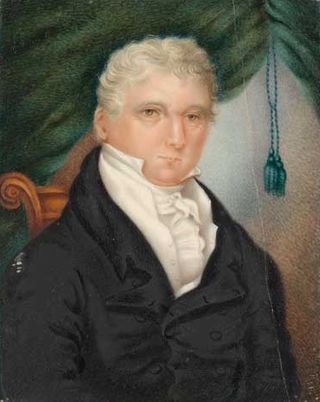
Simeon Lord was a pioneer merchant and a magistrate in Australia. He became a prominent trader in Sydney, buying and selling ship cargoes. Despite being an emancipist Lord was made a magistrate by Governor Lachlan Macquarie, and he became a frequent guest at government house. His business dealings were extensive. He became one of Sydney's wealthiest men. He was at various times a retailer, auctioneer, sealer, pastoralist, timber merchant and manufacturer. He is mentioned in many Australian History books, in particular regarding his status as an emancipist.

Sir John Dodson was an English judge, aka Dean of Arches, and member of parliament.
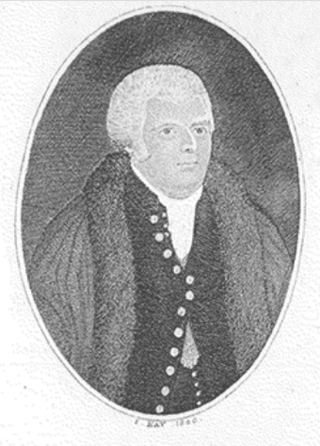
Harvey Christian Combe was an English Whig politician. He was the eldest surviving son of Harvey Combe, attorney, of Andover, Hampshire. He served as Lord Mayor of London 1799/1800.
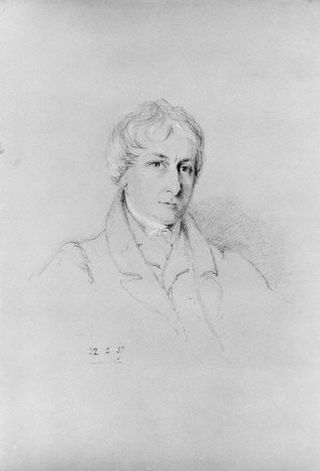
Arthur Howe Holdsworth (1780–1860) of Mount Galpin in the parish of Townstal and of Widdicombe in the parish of Stokenham, both in Devon, was an English merchant and politician.

Lieutenant-Colonel Lord Charles FitzRoy, was a British soldier and Whig politician. He fought at the Battle of Waterloo at an early age and later held political office as Vice-Chamberlain of the Household between 1835 and 1838.
Charles Edward Wilsonn was an English stationer and bookbinder and Tory politician who sat in the House of Commons from 1814 to 1818.

William Stephen Poyntz was an English Whig and Liberal politician who sat in the House of Commons variously between 1800 and 1837.
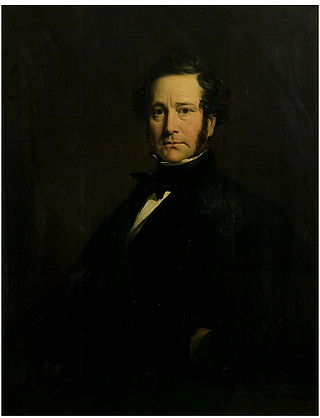
Sir Joshua Walmsley (1794–1871) was an English businessman and Liberal Party politician.
Josias Du Pré Porcher was an English politician. After following his uncle into the service of the British East India Company, he became wealthy and returned to England, although he was frustrated in an attempt to obtain a directorship of the company. His wealth and his friendship with Lord Caledon enabled him to sit in Parliament for various boroughs until 1818, although he was not a particularly conspicuous member. He died at his country home in Devonshire in 1820.

Christopher Atkinson, from about 1798 known as Christopher Atkinson Savile or Saville, was an English merchant and politician.
References
- ↑ "SMITH, Christopher (d.1835), of 7 Adam Street, Adelph, Westminster and Starborough Castle, Lingfield, Surr". History of Parliament Online. Retrieved 1 June 2017.